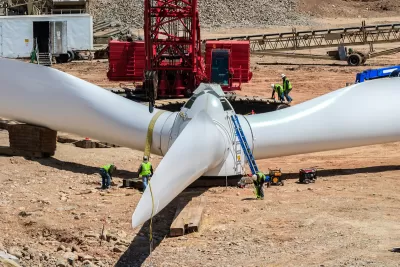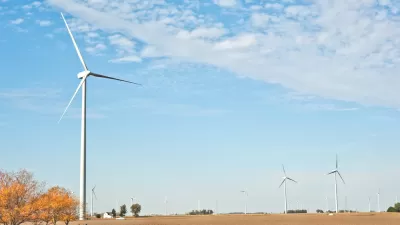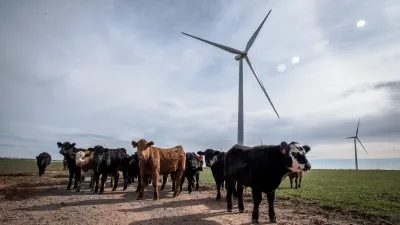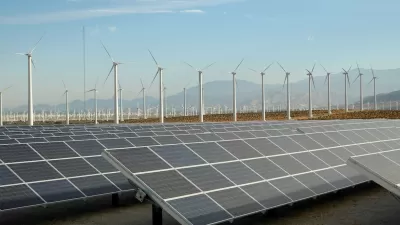To meet ambitious climate and decarbonization goals, some states are barring local governments from restricting wind and solar development.

According to an Associated Press article in the U.S. News & World Report, over a dozen U.S. states have passed laws that bar local jurisdictions from blocking renewable energy projects with zoning restrictions in response to a number of challenges from local groups that have blocked or delayed renewable projects.
In Michigan, over two dozen projects were derailed by local zoning rules. Around the country, at least 228 jurisdictions have imposed rules that restrict renewable energy development. In some cases, the concerns are environmental, while others center on the potential loss of farmland. Now, Michigan law still requires developers to go through the local process, but if denied, the decision can be overturned by a state commission if the project meets certain requirements.
Dan Scripps, chair of Michigan’s Public Service Commission, argues that renewable energy projects are vitally important to the entire state and can’t be limited by local concerns. States including Michigan require public utilities to transition away from fossil fuels by 2040 in alignment with federal goals.
FULL STORY: States With Big Climate Goals Strip Local Power to Block Green Projects

Maui's Vacation Rental Debate Turns Ugly
Verbal attacks, misinformation campaigns and fistfights plague a high-stakes debate to convert thousands of vacation rentals into long-term housing.

Planetizen Federal Action Tracker
A weekly monitor of how Trump’s orders and actions are impacting planners and planning in America.

In Urban Planning, AI Prompting Could be the New Design Thinking
Creativity has long been key to great urban design. What if we see AI as our new creative partner?

Massachusetts Budget Helps Close MBTA Budget Gap
The budget signed by Gov. Maura Healey includes $470 million in MBTA funding for the next fiscal year.

Milwaukee Launches Vision Zero Plan
Seven years after the city signed its Complete Streets Policy, the city is doubling down on its efforts to eliminate traffic deaths.

Portland Raises Parking Fees to Pay for Street Maintenance
The city is struggling to bridge a massive budget gap at the Bureau of Transportation, which largely depleted its reserves during the Civd-19 pandemic.
Urban Design for Planners 1: Software Tools
This six-course series explores essential urban design concepts using open source software and equips planners with the tools they need to participate fully in the urban design process.
Planning for Universal Design
Learn the tools for implementing Universal Design in planning regulations.
Gallatin County Department of Planning & Community Development
Heyer Gruel & Associates PA
JM Goldson LLC
City of Camden Redevelopment Agency
City of Astoria
Transportation Research & Education Center (TREC) at Portland State University
Jefferson Parish Government
Camden Redevelopment Agency
City of Claremont





























